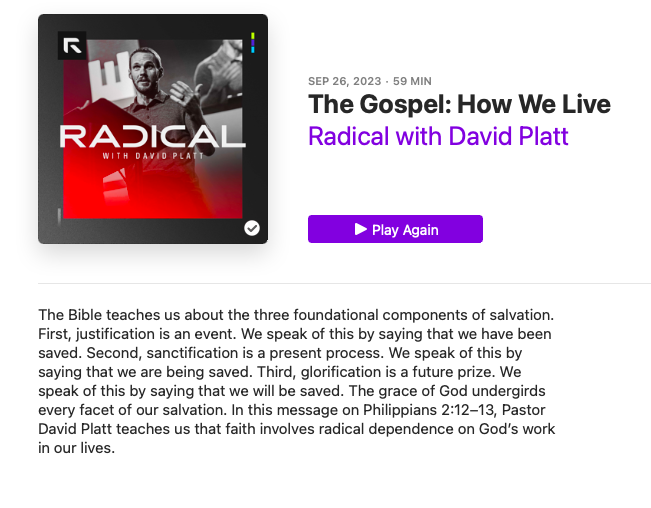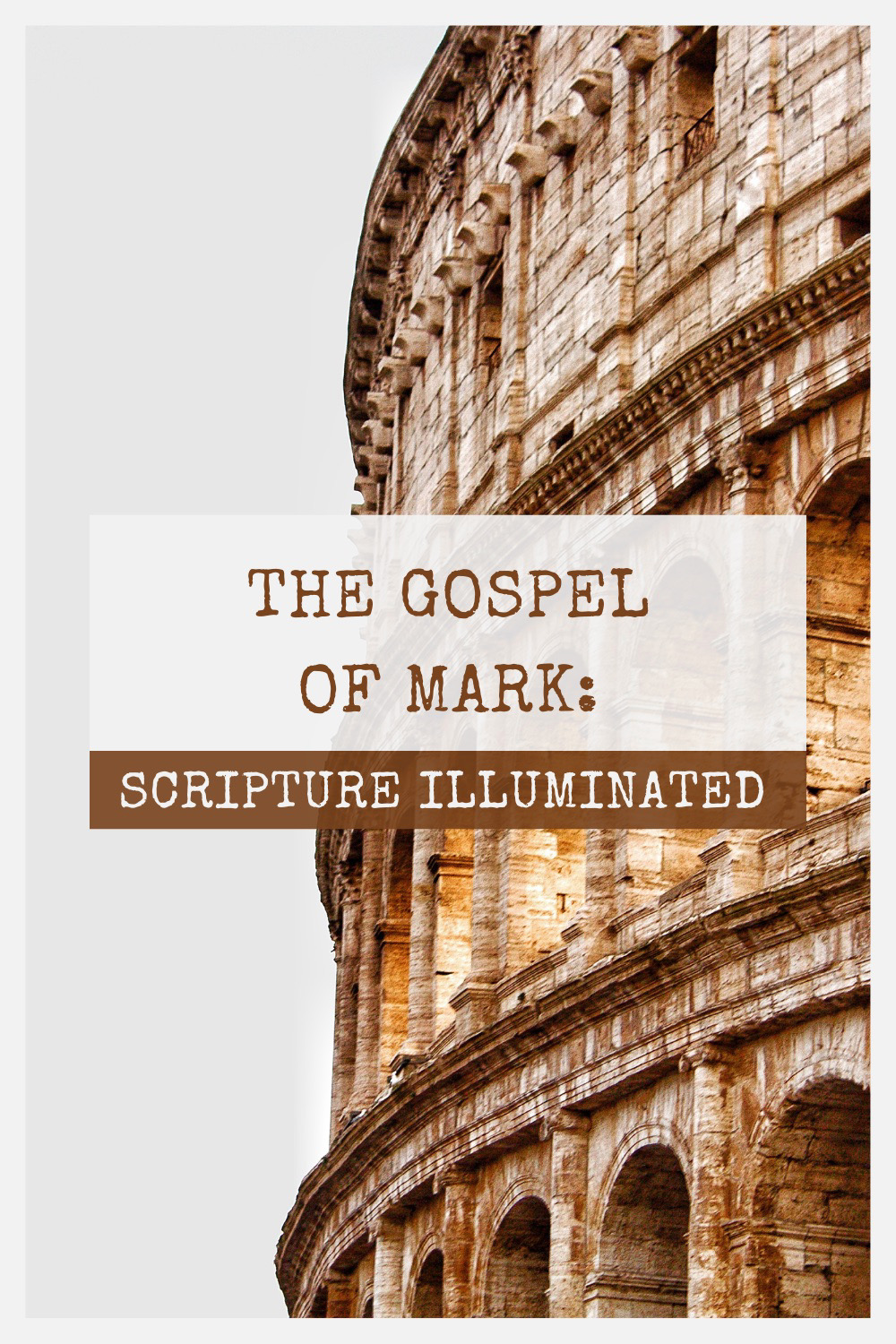GRASPING THE GOSPEL, PART 2
HOW A PROPER UNDERSTANDING TRANSFORMS EVERYTHING

A gospel that doesn’t transform is no gospel at all. However, the proclamation that Jesus is King changes everything for those who believe.
In part one of this series, we dove into the essence of the gospel through the lens of the biblical story. Now, we’ll turn to why it matters today, not just for when we die. Without a solid grasp of this message, we risk building our lives on a false gospel or a watered-down version void of power for everyday life.
SAME OLD SONG AND DANCE
The biblical story is ancient, but its truth has not changed. Neither has the human predicament.
Ever since Adam and Eve fell for a lie, humanity has followed in their footsteps, seeking to determine truth, identity, and goodness apart from our Creator. We listen to opposing voices that promise life where there is death. We chase divided loyalties and create idols that can never satisfy. Instead of trusting the King, we crave his position and crown ourselves god in his place.
Yet, the true gospel dethrones all rival powers and proclaims the true God over the false gods.1 If Jesus is Lord, Caesar is not, and neither are we.2 Genuine belief in this message extends beyond mental agreement or confession of a “sinner’s prayer”; it radically and progressively changes lives through a transformed heart that desires to please the King.
WHAT DOES IT MEAN TO BELIEVE?
There is a significant difference between believing in and believing that. In everyday life, we intuitively understand this concept, but in matters of faith, we often conflate the two. Biblical faith represents the former; we believe and, therefore, trust in Jesus.
For example, when someone declares, “I believe in my doctor,” they indicate trust in her wisdom and skill to fix their health issue. As a result, they listen and act on what she says. However, if they say, “I believe in my doctor,” yet refuse to do what she says, their conduct reveals a lack of trust in the relationship or indifference to the situation. Their words don’t match their actions. Relational trust yields loyal confidence that manifests itself in our decisions.
As Christians, we believe that Jesus is who he says he is, but we also trust in his work and words. As a result, we follow him. Believing that Jesus is the Son of God who died on the cross is good. But “even the demons believe that — and shudder!” (James 2:19). One recognizes him as Lord of her life; the other does not.
The distinction can even be seen in Israel’s story. Although the Israelites witnessed many miraculous signs from God and terrific displays of his glory, they still refused to trust him. They doubted his word and rebelled against his commands. In response, “The Lord said to Moses, “How long will these people treat me with contempt? How long will they refuse to believe in me, in spite of all the signs I have performed among them?” (Numbers 14:11, NIV, emphasis mine). There was no question about God’s existence; their failure was faith, loyal trust expressed through obedience.
A PICTURE OF MARRIAGE
Another illustration may help. When a couple exchanges marriage vows, they renounce all other lovers and pledge loyalty to one another. As scholar Scot McKnight points out, “Our relationship with God is depicted…in the terms of a marriage, and just as a husband and wife are not only absent of infidelities but also filled with fidelities…, so also someone who has faith is faithful.”3
Psychologist Edward T. Welch takes the illustration even further:
No spouse is perfect, but there are many spouses who are faithful and make good faith efforts to love. Mere words, of course, don’t tell the whole story. If a husband says that he is committed to his wife but is devoted to internet porn, has been sexually unfaithful…or is abusively angry, then you believe what he does more than what he says…. When stated allegiances are accompanied by treasonous actions, you judge allegiances based on deeds.4
We understand that no marriage is perfect. Repentance and forgiveness are regular parts of daily life together, but trust and fidelity should be ongoing expressions of that relationship. It is the same in our relationship with God: faith over time is faithfulness, not merely a one-time decision.5 We do not decide to marry and then return to our former ways of life; a new life has begun.
NEW HEARTS AND NEW LOYALTIES
When Jesus asks, “Who do you say I am?” our response holds implications for our lives.
Author and Pastor Greg Gilbert offers this consideration:
…[To] have faith in Jesus is, at its core, to believe that he really is who he says he is—the crucified and risen King who has conquered death and sin, and who has the power to save. Now how could a person believe all that, trust in it, and rely on it, and yet at the same time say, “But I don’t acknowledge that you are King over me”? That doesn’t make any sense. Faith in Christ carries in itself a renunciation of that rival power that King Jesus conquered—sin. And where that renunciation of sin is not present, neither is genuine faith in the One who defeated it.6
Saving faith leads to repentance, something so essential that even Jesus preached it.7 It involves turning from the things that grieve God’s heart and humbly submitting our wills and desires to his. Just as Jesus died and rose from the grave, so do believers die to sin and rise to new life in him by the power of the Holy Spirit. Baptism symbolizes this image of burial and resurrection: “Therefore, if anyone is in Christ, he is a new creation. The old has passed away; behold, the new has come” (2 Corinthians 5:17).
We forsake old kingdom ways and pledge allegiance to a new King. Just as he promised, the Spirit writes God’s laws on our hearts, transforming us into a people that desire to please him and seek our satisfaction in him.8 The process of God restoring his image and identity in us —what we call sanctification— continues until the day we see him face to face.9
This does not mean believers will never sin or struggle with it, but our relationship to it changes. At its core is a fundamental shift in our attitude towards sin; our hearts can no longer live in peace with it.10 Living comfortably in sin is no longer possible when the Spirit lives in us:
“No one born of God makes a practice of sinning, for God's seed abides in him; and he cannot keep on sinning, because he has been born of God”
(1 John 3:9, ESV, emphasis mine).
Authentic faith will not deliberately persist in behavior that grieves God.11 As believers, our sensitivity to sin actually increases. Welch rightly observes how the Spirit convicts us: “One piece of evidence of kingdom life is that you will see more sin, not less… but you will also notice that the Spirit is changing you. There have been times when you responded in humility rather than arrogance, love rather than indifference or even hatred. The change will be gradual but noticeable.”12
The Holy Spirit’s transformative work in believers happens slowly and never in a straight, upward trajectory. Sometimes growth feels painfully slow or even nonexistent. Theology professor Kelly Kapic suggests this is often because it’s the kind of growth we can’t see or understand:
Because when we try to judge growth, we often apply categories of moralism rather than the biblical categories of the Spirit’s fruit: love, joy, peace, patience, kindness, gentleness, and truth. We live in a world that works for outward and obvious triumph, so it doesn’t value slow-growing character traits…. But in God’s kingdom these traits are the places of real growth and development.13
God’s goal is to conform us to his image, a people who know and love him, who represent his kingdom and reflect his image throughout the world. However, if we can live in perpetual peace with sin —without any sign of the Spirit’s transformative work within us— then we must examine our hearts to determine what gospel we have actually believed.
AVOIDING A PENDULUM SWING
It’s essential to address the opposite end of the spectrum. Intentional, ongoing sin may not be an issue for some. But we may discover ourselves relying upon religious performance to win favor with the King. Neither situation embodies a proper understanding of the gospel.
God is not after mere behavior modification; he’s after our hearts. Behavior can’t foster a love for the Lord, but love for the Lord will foster behavior that honors him.
When faith is reduced to a matter of conduct, we are left with moralism. It’s a self-righteous effort to earn God’s approval. But belief in the gospel of Jesus rests in his accomplished work rather than our own. As theologian Jonathan Edwards once said, “We contribute nothing to our salvation except the sin that made it necessary.” We are saved by the grace of God, through faith alone, not because of any achievement on our part. This is why believers can have assurance of salvation. If we could earn it, Christ died in vain.14
Once you were dead because of your disobedience and your many sins. You used to live in sin, just like the rest of the world, obeying the devil—the commander of the powers in the unseen world. He is the spirit at work in the hearts of those who refuse to obey God. All of us used to live that way, following the passionate desires and inclinations of our sinful nature. By our very nature we were subject to God’s anger, just like everyone else.
But God is so rich in mercy, and he loved us so much, that even though we were dead because of our sins, he gave us life when he raised Christ from the dead. (It is only by God’s grace that you have been saved!) For he raised us from the dead along with Christ and seated us with him in the heavenly realms because we are united with Christ Jesus. So God can point to us in all future ages as examples of the incredible wealth of his grace and kindness toward us, as shown in all he has done for us who are united with Christ Jesus.
God saved you by his grace when you believed. And you can’t take credit for this; it is a gift from God. Salvation is not a reward for the good things we have done, so none of us can boast about it. For we are God’s masterpiece. He has created us anew in Christ Jesus, so we can do the good things he planned for us long ago.
EPHESIANS 2:1-10,NLT
God’s grace saves us and keeps working in us, empowering us to live for him in every aspect of our lives.
ALL IS GRACE
Nothing exists apart from his grace. From God’s call that bids us come to the repentance he grants and the ability to obey, all is undeserved favor. His grace, however, doesn’t nullify our efforts to follow; it empowers them. Philosopher Dallas Willard explains the tension:
The path of spiritual growth in the riches of Christ is not a passive one. Grace is not opposed to effort. It is opposed to earning. Effort is action. Earning is attitude. You have never seen people more active than those who have been set on fire by the grace of God. Paul, who perhaps understood grace better than any other mere human being, looked back at what had happened to him and said: “By the grace of God I am what I am, and his grace toward me did not prove vain; but I labored even more than all of them, yet not I, but the grace of God with me.” (I Cor. 15:10).15
With faith at the root, God’s grace produces fruit in our lives. Everything we do is an expression of what we truly believe, and why we do it is just as important as what we do. When we attempt to earn our salvation or fear we’ve somehow lost it, we shift our faith from Christ to ourselves.16 But when we embrace a life of sin, we reveal our true allegiance despite alternative claims. A proper understanding of the person and work of Jesus Christ liberates us from both extremes.
CONCLUSION
God is in the re-creation business. From Genesis to Revelation, we see his Spirit’s work redeeming and restoring what sin has distorted. Believers are changed from the inside out as God renews his image, nature, and glory within us. As Pastor Tim Keller wrote, it would be a violation of God’s glory and our nature not to give him Lordship over our lives.17
So, if the gospel doesn’t change us, it isn’t the biblical gospel.18 The good news of Jesus —the Lord who saves— remakes and equips believers for everyday life. It’s a message that goes beyond mere sin management and salvation from eternal consequences; it redeems people who trust him and desire to please him.19 Slowly but surely, he makes all things new, including us. A proper understanding transforms everything.
FOR FURTHER REFLECTION:

- Scot McKnight, The King Jesus Gospel: The Original Good News Revisited, rev. ed. (Grand Rapids: Zondervan, 2016), Kindle, 58. ↩︎
- See the section “Gospel Origins” in part one of this series: https://kellidsanders.com/grasping-the-gospel-part-1/ ↩︎
- McKnight, The King Jesus Gospel, 144. ↩︎
- Edward T. Welch, Running Scared: Fear, Worry, and the God of Rest (Greensboro: New Growth, 2017), 217. ↩︎
- The Remnant Radio, “The King Jesus Gospel: With Scot McKnight,” YouTube, June 18, 2020, video, 38:20-38:36, https://www.youtube.com/watch?v=_uzyevTM8zU ↩︎
- Greg Gilbert, What is the Gospel? (Wheaton: Crossway, 2010), Kindle, 80. ↩︎
- Mark 1:15; Luke 13:3. ↩︎
- Jeremiah 31:33; Ezekiel 11:19; Hebrews 8:10. ↩︎
- 2 Corinthians 3:18; Philippians 1:6. ↩︎
- Gilbert, What is the Gospel?, 81. ↩︎
- Hebrews 10:26. ↩︎
- Welch, Running Scared, 223-224. ↩︎
- Kelly Kapic, You’re Only Human: How Your Limits Reflect God’s Design and Why That’s Good News, (Grand Rapids: Brazos), 163. ↩︎
- Galatians 2:21. ↩︎
- “Live Life to the Full,“dwillard.org, April 14, 2001, https://dwillard.org/resources/articles/live-life-to-the-full ↩︎
- Gilbert, What is the Gospel?, 82. ↩︎
- Timothy Keller, The Songs of Jesus: A Year of Daily Devotions in the Psalms (New York: Penguin, 2015), 165. ↩︎
- McKnight, The King Jesus Gospel, 27. ↩︎
- Jerry Bridges, The Gospel for Real Life: Turn to the Liberating Power of the Cross…Every Day (Colorado Springs: NavPress, 2003), 79. ↩︎






Thanks Kelli. This was great